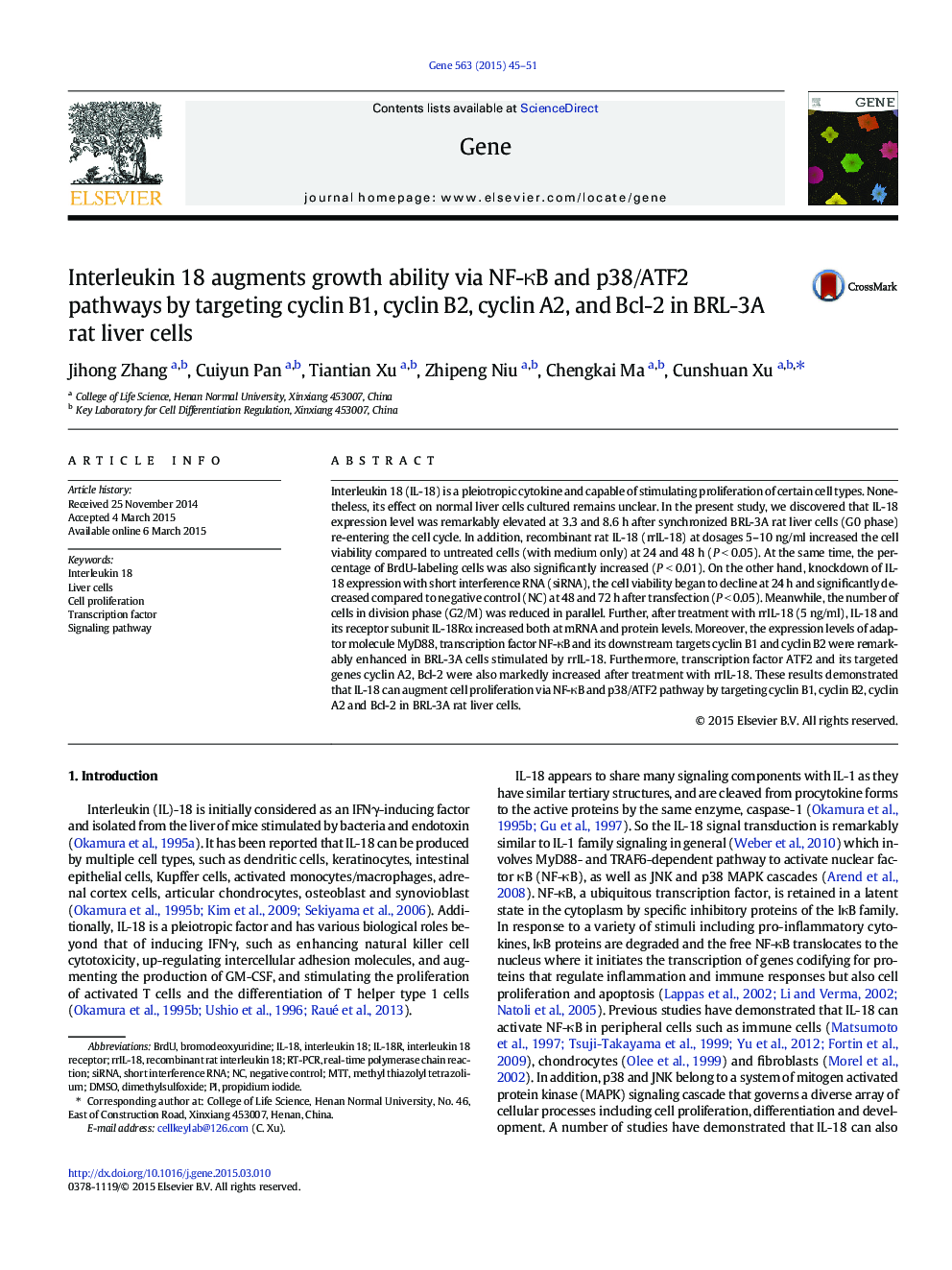| Article ID | Journal | Published Year | Pages | File Type |
|---|---|---|---|---|
| 5905436 | Gene | 2015 | 7 Pages |
Abstract
Interleukin 18 (IL-18) is a pleiotropic cytokine and capable of stimulating proliferation of certain cell types. Nonetheless, its effect on normal liver cells cultured remains unclear. In the present study, we discovered that IL-18 expression level was remarkably elevated at 3.3 and 8.6 h after synchronized BRL-3A rat liver cells (G0 phase) re-entering the cell cycle. In addition, recombinant rat IL-18 (rrIL-18) at dosages 5-10 ng/ml increased the cell viability compared to untreated cells (with medium only) at 24 and 48 h (P < 0.05). At the same time, the percentage of BrdU-labeling cells was also significantly increased (P < 0.01). On the other hand, knockdown of IL-18 expression with short interference RNA (siRNA), the cell viability began to decline at 24 h and significantly decreased compared to negative control (NC) at 48 and 72 h after transfection (P < 0.05). Meanwhile, the number of cells in division phase (G2/M) was reduced in parallel. Further, after treatment with rrIL-18 (5 ng/ml), IL-18 and its receptor subunit IL-18Rα increased both at mRNA and protein levels. Moreover, the expression levels of adaptor molecule MyD88, transcription factor NF-κB and its downstream targets cyclin B1 and cyclin B2 were remarkably enhanced in BRL-3A cells stimulated by rrIL-18. Furthermore, transcription factor ATF2 and its targeted genes cyclin A2, Bcl-2 were also markedly increased after treatment with rrIL-18. These results demonstrated that IL-18 can augment cell proliferation via NF-κB and p38/ATF2 pathway by targeting cyclin B1, cyclin B2, cyclin A2 and Bcl-2 in BRL-3A rat liver cells.
Keywords
Related Topics
Life Sciences
Biochemistry, Genetics and Molecular Biology
Genetics
Authors
Jihong Zhang, Cuiyun Pan, Tiantian Xu, Zhipeng Niu, Chengkai Ma, Cunshuan Xu,
